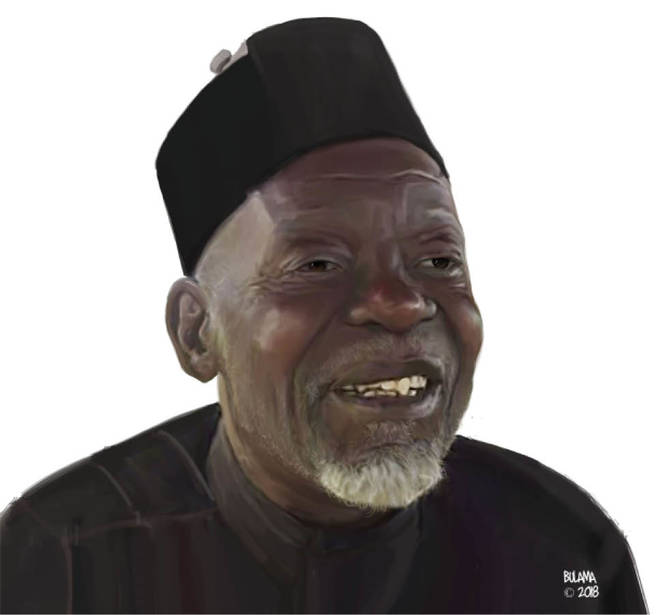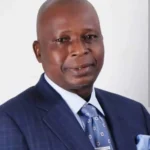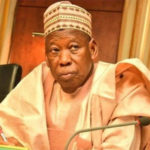
Alhaji Abdullahi Isa, aka Abdullahi ‘No-Sweat’, is a journalist with 50 years experience. Travelling and adventure take a place of pride in the innermost chambers of his heart and he claimed to have travelled more than the man currently touted as the most widely-travelled Nigerian. The father of nine, spoke to Umoru Faruk Salifu, Abdullahi Yahaya Bello & Adie Vanessa Offiong
Is it okay to say you are the most widely-travelled Nigerian after the famous Olabisi Ajala or have you travelled further than he has?
Well, I think I have traveled more than Ajala and been on more adventures than he has. The last time I met him was in the late 60s in Sydney, Australia. Where I have covered, Ajala has not. I was in the U.S., South America, Iceland, Canada, Greenland, Pharaoh Island. All these countries he couldn’t have gone to on his scooter, because most of his journeys were on scooter and my journeys were more of adventure.
I went to places like Kashmir. Curiously, almost everywhere I have visited in the past are now mostly war zones. Like Afghanistan and Pakistan. When they raided Minorca, Waziristan, Peshawar, Lahore, all these places, when I hear about them on CNN, it brings memories back, because they are places I have lived in. I was very, very close to the Afghans to the extent that I speak their language with slangs. Being able to speak their language well with their accent, the Nigerian-Pashto accent made a friend of mine called Badamunir to persuade me to become an actor in a Pucsoo film, which became a hit. They called it Saratorai and Gancap. Gancap means ‘pickpocket’. I was the man whose pocket was picked.
Then I was a hippie in the U.S., a truck driver in Argentina, a strip-tease dancer in Sweden, all these Ajala never did. I hitchhiked across North America. I started from Iceland and got Canadian Oceanographically by boat. There was one Bob on it; he was a mixture of Red Indian and white. He gave me a lift straight to Greenland. From there I went cod fishing in Iceland. Cod fish is what we call stock fish here.
I also fished herrings in Akureri, and then we went to Halifax and Canada. I hitchhiked across Canada and went to Niagara Falls. From there, I went to Washington, D.C., and California where I became a hippie. I settled there with a family for a long time but still used to travel a lot. I got tired of the hippie system and moved to Brazil and attended the Copacabana festival. There, I took a wife and stayed on for two years during which I travelled around. I was driving cows from Argentina to Guantanamo and the rest of South America and horses in a trailer and box trailers. From there, I went to Afghanistan. These were the good old days when hippies were going to Kathmandu, because we were all looking for a free life. We were smoking and drinking, so I stayed there for about five years on and off.
On the average, how many languages do you speak?
I speak about ten languages, of which six are foreign.
That seems to be one of your secrets in assimilating into these areas…
Yes, it helped a lot. Because when you can speak somebody’s language, you have almost captured him. Last year while I was in Mecca, I was so pleased to see a lot of Afghans and met with the first female gynaecologist from there. While I was there, their women were no more than housewives. This, for me, is an indication of positive change.
They were thrilled to see me because it was surprising to hear a black man speaking their language and they were not born while I was there. I named some of the places I had been to in Afghanistan and they were surprised because most of them had never been there though these were parts of their homeland. The roads were rugged then like we have from Gombe to Chad. I used to climb on top of buses. It was this type of life that I was narrating in California that prompted people like Peter Fonda to initiate the easy riders.
While in Afghanistan, did you notice the sign of the current movement conducted by the Mujahidin?
I knew them all. I knew Gullaibudeen, Hegmata, Najibulah and all the leaders because we used to go and drink ‘bank’ (a local drink) together. I knew about the coming of the struggles because then the communists were moving in very fast.
A friend of mine was killed by Mujahidin in Kandahar. I co-owned a hotel in Kandahar called Peace Hotel. You could see the vision of peace at that time. I didn’t know it would come to this kind of peace today. The hotel got wrecked along with cinema houses and everything I was involved in.
What statement were you trying to make with your film in Pakistan?
That was to teach the locals that stealing from foreigners was not a good idea. This theft pattern is most common in the North-West frontier. They have a very strict law which could be described as Sharia law. If they catch you stealing, they chop your hands off. Not like what we had in Zamfara. If you do not fast, you get stoned to death.
The Afghans are very similar to the Fulani. If an Afghan loves you, he loves you and if he hates you, no matter what you do to please him, he’ll still hate you. They are very unforgiving and transfer family fight to generations.
Can this be related to what is happening there now with the military struggle and all that?
Yes. Afghans are like the Fulani, as I said. They are very proud and nationalistic. He may not have eaten in a week but if you give him a strange food, he will turn down your offer and stay hungry. A Fulani man will say mi hari, which means I am okay. But he is dying of hunger. I think that is why I was able to live with them comfortably. But in general, they are very nice people.
One would expect that after all these sojourns, there would be some element of wealth to you…
I am not rich. The late Dr Mamman Shata invited me through Umaru Kontagora and told me after watching my interview with Ambassador Yusuf Mamman, na san haka zan ganka, Allah ba Ya ba mutum abu biyu gaba daya, Allah bai taba ba mutum abu biyu gaba daya ba. Na san Allah zai baka ilimin yawo, Ya baka kudi ba. Dole ka rasa daya (Meaning, I know that I would see you like this. God does not give an individual two wealth at the same time. God would not give you the wisdom of travelling and at the same time give you riches). I have enough money to survive on though.
How were you able to generate money at that time?
I used to have a company named ‘No -Sweat’ Overland Tours. We started this Cotonou business. We bought buses from Kronengan, Holland, which is a university town. They had so many second-hand vehicles from universities and factories from all over. I used to have a Mercedes 302, which I would drive to Amsterdam with my Canadian friend, Mike. He would repair it along with another friend Ann Eaton. She was a good mechanic who drove and swore like a man, too.
In those days, we called on hippies who were usually located in India, Pakistan, Afghanistan, Nepal and Kathmandu where Mount Everest is. When you get to Kathmandu and at the Everest base, it is like paradise, because every luxury is available. It was there that I met Cat Stevens who is now Yusuf Islam. He said, “It is not time to make a change, just relax and take it easy…” He was a good musician but during the Bush era, he was banned from entering the U.S. because they said he has terrorist links. I believe that it is because he is a Muslim.
Whenever I got buses from Kathmandu, I’d sell them for about $10,000 as against the $1,000 we bought them. With that, I kept moving.
While you were in Pakistan, you met former President Shehu Shagari who made you to return home. What happened afterwards?
When I returned, Shagari didn’t last six months before the army showed him the way out. So I couldn’t meet him until recently and he remembered me. But when I came back, I saw that the entire system was too corrupt and I am still fighting this corruption. If that is the way I would make money, I am afraid I don’t like that kind of money. There is no hope that things will improve. If you don’t have a godfather, you can’t progress and this is what I don’t want to be involved in.
Even in Pakistan at that time, there was family planning. Unfortunately, the daughter of General Ayub Khan in those days had twins. So the ulama came up and said, “You see, you say we should have family planning but here God has given your daughter twins. If she continues like this, the family planning system will collapse.”
How did you come by the name ‘No Sweat’?
I had a girlfriend in Brazil who gave me the name. When we were parting ways she asked me to keep the name. I decided to keep it.
This interview was conducted in 2009. ‘No sweat’ died in Yola on Thursday at 80.
This interview was first published on August 7, 2009.




